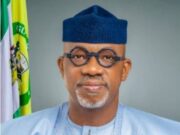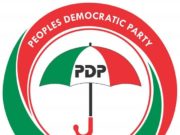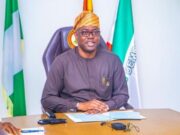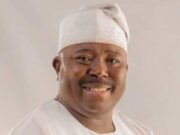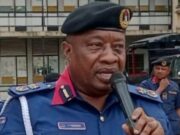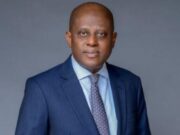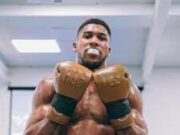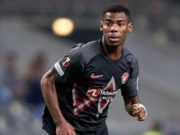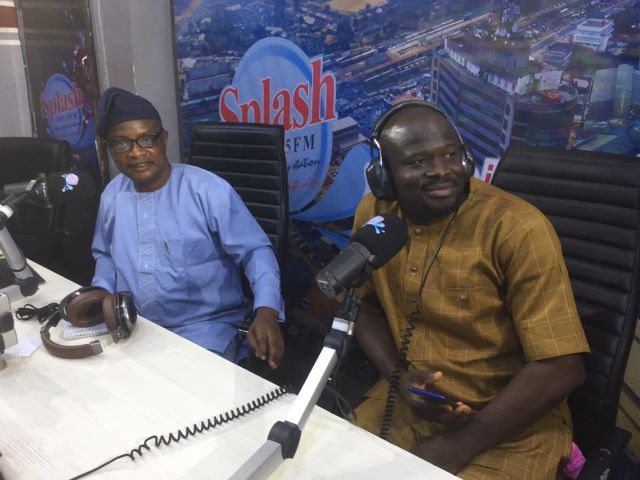Our guest on our Radio Show on Splash 105.5fm recently was DR. OLUDAYO TADE. He is a Researcher, Communication Teacher, Security Consultant, Trainer, Public Consultant Engagement Facilitator and Public Intellectual who works with the great University of Ibadan, (U.I). Before he joined the University, he was a journalist on the beat and always on the move. He gave an insight into his journalism profession, journey to the classroom, roles played by media in the last Presidential election among other issues.
Excerpts:
Welcome on the show and thank you for being with us.
Thank you sir. It is my pleasure to be on the show.
Can you tell us where you worked before returning to the classroom?
I worked at Rhythm FM, Silverbird TV and then back to the classroom.
How easy was it for you to change from being a professional Journalist to becoming a Lecturer?
I think it’s not difficult, it’s about passion. It’s just like being on the field as a Journalist, you are interested in what goes on in the society and you are abreast of happenings around you. Also, being a correspondent makes you cover virtually every beat and that makes you more versatile than specialized beat reporter. I was doing that with the advice from elders and was actually schooling while working as a journalist, so it was helping. Academics was enhancing the quality of journalism I was into, so I can’t say I’ve left journalism because it’s what I still do. Journalism has also helped my scholarship in many ways. I think I’m adding values.
As I said when I introduced you that you were once a Journalist and you’ve been talking about it. As a Media Communication Lecturer, teacher of Journalists and media professionals, can you briefly tell us about Mass Communication, which is now called ‘Media Communication’? What was the mistake made by those who developed the curriculum at that time that you’re trying to correct now?
Evolution – the space is wider. At a particular time, there was no opportunity for you to be on air and then get immediate feedback. Those who defined Mass Communication at that particular point in time were looking at one-way direction. Now, we have multiple sources of responses. Of course, you can get immediate feedback and use it to do on-air adjustment even if you have a structured or scripted show. You can be online and tracking the comments of people, that can also direct your attention to where you are not touching or certain points that you are leaving out. The evolution of the media landscape is also changing the conception of mass media and the professionalization of that particular field. You have many people who can now report. The difference between those of us who have been schooled in this particular area is that we are trained with the ethics of the profession, but those that are doing it are citizen journalists. They are those ones who are not professionals in the field.
This brings about the second question I want to ask; in today’s world, who is a professional Journalist?
There is a barrier that has now been broken down. The barrier is the democratization of the media space. In those days, I reported and wrote stories that had to go through Editors and step down to sub-editors who would have to point out corrections and the rest of them. I recall as a Mass Communication student in the tertiary institution that one of the assignments we had to do was to monitor foreign media organizations, maybe Voice Of America, VOA; do newspaper readings and then spot out different errors that were there. In those times, it was difficult to find all sorts of errors, but in today’s world, things have broken down. The quality is going down and those that are supposed to still be under tutelage are standing alone and then everyone becomes publishers without necessarily having the requisite skills and the experience to go on air. I think that is just the areas that we need to check in the media world. That also contributes to the framing of our news, the contributions that we are making and the direction or molding of public opinions that we are doing. If we are doing media communication for enlightenment, promotion of values in the society is different from commoditization angle of news. Although no one is doing anything free, so this has to be balanced and this is what media executives should begin to look into.
We had the Presidential and National Assembly election last Saturday, looking at the role played in the coverage of the two electoral processes, would you say the media has been up and doing so far.
Yes, the media has tried but we can do better. The media has tried within the difficult terrain under which most media houses operate. We know that the environment is not conducive and the media is also an endangered species. We’ve seen Journalists being attacked, we’ve seen media houses being attacked during pre-election period. Even at that, Journalists have gone as far as covering even from the creeks in states like Rivers, where people are threatened fire and brimstone before the election. We got reports from that particular location and I think Journalists have tried as much as possible to report the election. What we should be doing moving forward is to begin to promote peace journalism. Pre-election coverage was based on promoting conflicts between and across parties at campaign grounds even within the party. What we were more interested in was candidate A said, this one is useless and that was what we were reporting. We have left the issues and then we allowed politicians to take that agenda setting function from us. How would we hold them to account if we are the one helping them to promote discord within the society? Then we come back later to ask ourselves; how did we get here forgetting that we also contributed to the making of the present social order. We should be reviewing how we report, particularly election coverage so that we can begin to hold those aspiring for political offices accountable.
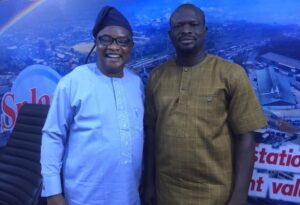
You just mentioned social order; agenda setting while talking about the roles media men should and must play. A guest we hosted on the show one day was accusing Journalists of being part of the problems we have in the society. He said if a Journalist discovers something and publishes it, the security agencies should take it up in form of petition, arrest the person involved, take him or her to court and eventually jail him or her. He said this should be the norm in the practice of journalism but Journalists have failed in this aspect. This means the Journalists are part of the problem. How do you see this analogy?
We can and people are doing it. It is easier for those that are outside every profession to say what they are doing inside is bad. For those of us who are in the inside and remain inside, it is a difficult terrain for us to operate even as a Journalist. The critical thing we should understand is that the Journalist is not outside the society. He’s in the society and that’s what I tell my colleagues that whatever we make this society to become, we would benefit and suffer the consequences. The media is a critical institution in the making of the society. Most of the corruption cases that have been probed were raised by investigative journalists. What have become of those cases now? We should look at those areas that Journalists have performed their functions critically, and understand the complex terrain under which they work. I’m sure that the media industry that those outside are looking at, is not as rosy for those that are inside. I know many Journalists whose organizations are owing. How many of those in the civil service can be working without being paid? These are difficult things for people. How many organizations can employ and pay in a country where they have to buy and pay for diesel to run their stations. How many would survive? Now that we have social media outlets, everything is now electronic online. How many people are buying newspaper to read? These are the complex terrain and you can’t divorce the political economy of the Nigeria media industry from how that particular industry will play its role. How many of the media houses are owned by politicians? Look at the history of ‘Iwe Iroyin’ and the rest of them; the reason for setting them up was for liberation. Therefore, we can’t divorce the ownership that will contribute to the agenda setting. If interests clash, who would suffer? It’s the Journalist on the field. How do they balance it now that they are after their own welfare and they also want their family to be better? The society that they are also reporting and reporting may also be against them. The nature of the society is affecting the media industry.
From the statistics I have, Nigerians who are eligible to vote are about 120 million. Those who registered are less than that. Many did not pick their PVCs while many of those who did, did not turn out to vote. A few who got accredited did not come back to vote. INEC said that they expected about 87 million Nigerians to vote and not many did. Whose fault is this?
Part of it can come from the people themselves. Majority will collect the PVC because there are many conditions attached to it; maybe their children need admission and PVC is required for the admission processes. Some have it so that their lives can be better in their workplace, or so that they can use it in banks and not necessarily for the electoral process. On the election day, people will go to mosque or church to pray and ask God to give them good leaders, meanwhile you have left the job that you are supposed to do undone, and then you are on the mountain for some people to elect on your behalf. It doesn’t work that way. You also have issue of trust within the system. People do not trust our system that their votes would count. The totality of the votes added together is not up to 30 million. When people say high voter turnout, I begin to ask; do you know how many voters were accredited at that particular polling unit? Do you crosscheck that particular data with those who have come out to vote? It is not only a Nigeria problem, it happens even in America. It is also because people are getting disconnected from the system. The much they are doing for themselves is personal effort and they are not seeing what the government is doing for them. Everyone has become government on their own by fixing their roads, getting water and providing security for themselves. Insecurity also contributes to it because building up to that particular election, there were threats everywhere and cases of violence were recorded with casualties. Yet till date, we have not seen those who were arrested, prosecuted and jailed. Injustices within the system increase the level of susceptibility of people to want to believe and take themselves along that particular electoral system.
Many Nigerians assumed or thought the election would not hold because of the scarcity of the naira and fuel. Were you surprised at the number of those who came out to vote?
Yes, the policy should have prompted more people to come out because they should know that, a single policy of somebody that is several miles away will affect your life. That is how powerful government is. If you stay outside and say you will not vote and support whoever emerges, whoever emerges will determine how you would fair in the next four or eight years as the case may be. Therefore, if you allow them to be electing misfits into power, these are people that will not appreciate or understand how you are feeling. Elsewhere, what they do is to peruse what candidates are promising, situate their needs within that, and vote their preference.
The Presidential candidate of the All Progressives Congress, APC, Asiwaju Bola Ahmed Tinubu lost Lagos and the whole internet caught fire. As a political Observer and student of Political Science, what’s the big deal in this?
This is because Lagos is special. Lagos is the campaign point used by Asiwaju to market himself. His party has been in power in Lagos since 1999 and change of party occurred along the line until they arrived as APC.
Many people view him as Governor-Emeritus…
There is no problem in him being referred to as anything. The person that is a child today may be lucky to be a grandfather. Life is structured that way. Lagos is critical; it is a selling point for him. Lagos is not one of the states that were listed among those states that they would ever lose. As a matter of fact, if they had won Lagos with wider margin, Tinubu would not be leading with that number votes. It is significant for the other party and it is historical because since the return of democracy in this dispensation, how many times have they lost Lagos during presidential elections? Not even during Obasanjo’s tenure with the kind of election conducted at that time. Everyone is interested in some kind of change and they saw that it is possible if people are determined to do something and they want to do it, they can make it happen. That is the significance of Lagos and thanks to the constitutional provision that says you need to have this spread, if it is not about spread and openly about voting and winning new states. Lagos ought not to have been listed among states where they will say at least we got 25% more than we needed. One of the criteria they use in sharing political offices is the number of votes gotten from each state. They may give a particular state Minister of State just because the state did not contribute certain percentage of the votes that brought that particular government in power. That is why Lagos is important and we cannot wish it away. It is also significant because it is not coming from the PDP that has been struggling to overtake Lagos.
Someone said that the major reason Tinubu lost Lagos is that he did not ‘put mouth’ in the EndSARS protest.
I am not Tinubu and I can’t speak for him. I know that it may be a strategy. I understand that he didn’t say anything even when Igangan incident happened in Oyo State. He only started featuring when Owo massacre occurred and it was during electioneering period when he needed their support. It could be a political strategy so that he can appear as somebody that will not misrepresent the interests of those that he’s working with to actualize that particular dream he is after.
Let’s talk about Oyo state, Governor Seyi Makinde is part of the G5 Governors that are against what they called ‘unfairness’ by the leaders of the opposition’s Peoples democratic Party, PDP and Atiku’s emergence as the party’s Presidential candidate. By commission or omission, Atiku has lost Oyo State…
He made 25% so it is not total loss. It is to fulfill constitutional requirement. The warning was already there and I agree that the Governor belongs to a particular group. Politics is local and you don’t sacrifice your ambition for another person’s ambition. Everything is interest. Those that will be fighting for Tinubu, Atiku, Obi and the rest of them are only doing it for their interests. It’s about the idea of who best can better our lives, it’s not about any other thing. It’s about in whose government would my life be better in Nigeria, that is the game every one of us is involved in. Oyo State is Pace Setter State and the Governor said that they would vote equity and justice. I aligned with that position that after eight years, presidency should not go to the north if we are talking about equity and fairness. It is not on the point of convenience that this may be the last chance of the PDP presidential candidate and then he feels that he can hijack the particular post. You have to situate yourself within the scheme of things, how injurious will my position be on my party? This is what has happened. You also have to understand the voter literacy component of the state. Asking people to vote for party A and not party B has happened before in this state that I called ‘The Lam Adesina Syndrome’ when he did ‘Aremu oke and Aremu isale’ and he lost in that particular process. You don’t sacrifice that. The ruling party in Oyo State is strategically being poised to become opposition, and so they need to fight for the soul and life of their party. It doesn’t mean that because people voted this way during presidential that they will also vote same way during governorship, because some who did not come out to vote during presidential may come out during governorship. This is because that one is closer to them and they will do more for House of Assembly because that is also closest to them.
What advice do you have for politicians?
If you have lost in the last election, it is not the end of the world. It is the decision of people. You were preferred over other people the last time, but respect the choices people have made and reposition for greater responsibility. You will still be useful for the development of humanity in the future and we need to work with whoever has won. Those who have won should also know that people have entrusted their lives in their hands and they should represent them well when they get there.
















